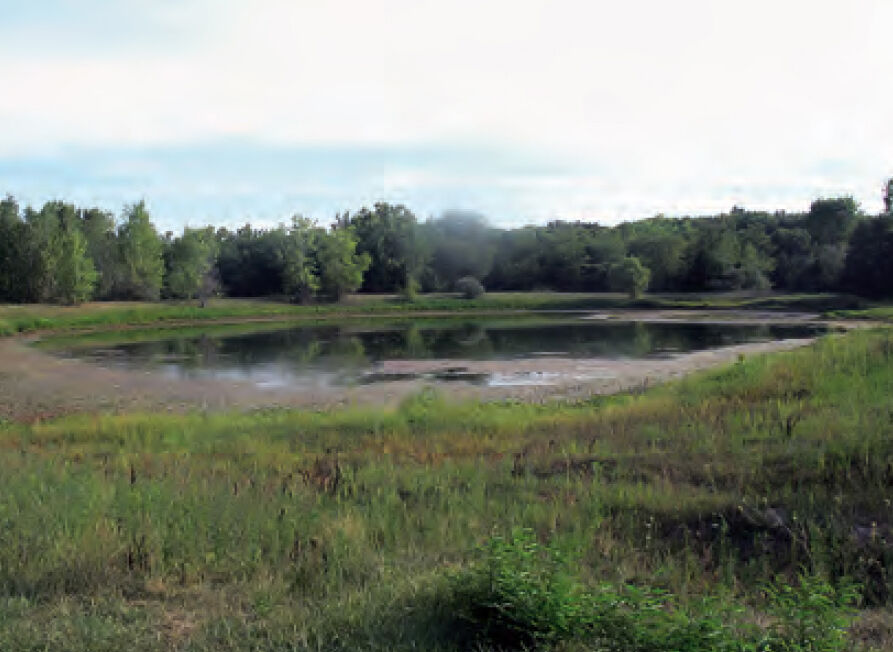The United States Supreme Court may not have ended the WOTUS wars.
The Environmental Protection Agency recently released its final “waters of the United States” rule, in the wake of the Supreme Court’s earlier Sackett v. EPA decision dramatically revising and restricting what counts as water of the U.S.
It’s a final rule that EPA’s many critics believed should never have been developed while Sackett was being decided. Most mainstream U.S. ag groups—including the American Farm Bureau Federation, National Cattleman’s Beef Association, National Corn Growers Association, National Pork Producers Council and U.S. Poultry and Egg Association—asked for a summary judgment to require EPA to completely rewrite its WOTUS rule. Instead, they got a partial revision that takes account of Sackett’s tossing of the significant nexus test and replaces it with a continuous surface connection requirement.
Proponents and critics of EPA both used the word “disappointed” freely. “While I am disappointed by the Supreme Court’s decision in the Sackett case, EPA and Army have an obligation to apply this decision alongside our state co-regulators, Tribes, and partners,” said EPA Administrator Michael S. Regan. “We’ve moved quickly to finalize amendments to the definition of ‘waters of the United States’ to provide a clear path forward that adheres to the Supreme Court’s ruling. EPA will never waver from our responsibility to ensure clean water for all. Moving forward, we will do everything we can with our existing authorities and resources to help communities, states, and Tribes protect the clean water upon which we all depend.”
The EPA said, “While EPA’s and Army’s 2023 rule defining ‘waters of the United States’ was not directly before the Supreme Court, the decision in Sackett made clear that certain aspects of the 2023 rule are invalid. The amendments issued today are limited and change only parts of the 2023 rule that are invalid under the Sackett v. EPA decision. For example, today’s final rule removes the significant nexus test from consideration when identifying tributaries and other waters as federally protected.”
“Because the sole purpose of this rule is to amend specific provisions of the 2023 rule that are invalid under Sackett, the rule will take effect immediately,” according to EPA.
The agency is hosting a public webinar Sept. 12 to provide updates on the definition of “waters of the United States.” For registration information, visit EPA’s webpage at bit.ly/3OXbIdf for the amendments rule.
Agriculture groups respond
American Farm Bureau Federation President Zippy Duvall said, “EPA had a golden opportunity to write a waters of the U.S. rule that’s fair to farmers and stands the test of time, but instead chose to continue government overreach and revise only a small slice of the rule that was rejected by the Supreme Court. We’re pleased the vague and confusing ‘significant nexus’ test has been eliminated as the Supreme Court dictated. But EPA has ignored other clear concerns raised by the justices, 26 states, and farmers across the country about the rule’s failure to respect private property rights and the Clean Water Act.”
Regan used the term “clear path,” but for many farm groups the way ahead is anything but clear. The Fertilizer Institute’s President and CEO Corey Rosenbusch said, “The Fertilizer Institute is disappointed in the continued lack of clarity in EPA’s newly released WOTUS rule, including the agency’s disregard both for the procedural need to invite public input for consideration and for May’s Supreme Court ruling determining which bodies of water fall under federal jurisdiction.
“It is unclear how a half-baked rule will provide any amount of durability or certainty to the regulated community. In this regard, the guidance and implementation tools that EPA says it plans to develop are critical to both the fertilizer industry and its farmer customers. A recent survey of TFI members found that the No. 1 concern for companies in the fertilizer industry is regulatory certainty. By shortcutting the regulatory process, EPA fails to satisfy its stated intent. We want clear rules that facilitate long-term planning and the capital investments that allow us to continue providing the critical nutrients that feed the crops that feed our communities.”
Republicans react
Missouri Rep. Sam Graves, R-MO, chairman of the Transportation and Infrastructure Committee in the House of Representatives and Water Resources and Environment Subcommittee Chairman David Rouzer, R-NC, said in a statement, “The Supreme Court’s ruling in Sackett was a decisive win for America’s farmers, small businesses, property owners, and those who build our infrastructure. We said from the very beginning that the Biden administration should have waited on Sackett, knowing how much of an impact the decision could have on their costly, burdensome, and overreaching WOTUS rule.
“Unfortunately, the Biden administration’s revised rule barely pays lip service to the Sackett decision. The Court was clear that Clean Water Act overreach is illegal. The administration is now trying to make Sackett fit with a rule that never should have been issued in the first place. This revised rule ignores fundamental concerns laid out in Sackett and is a missed opportunity to finally end longstanding confusion over what constitutes a WOTUS.”
On Feb. 2, after EPA made clear that it was going ahead with developing a WOTUS rule despite the decision of the Supreme Court to take up Sackett, Graves and Rouzer introduced a joint resolution of disapproval under the Congressional Review Act . On March 9, the House of Representatives approved the Graves-Rouzer resolution with bipartisan support in a vote of 227-198. The Senate followed suit March 29, but President Joe Biden vetoed the resolution April 6, shortly before the Supreme Court ruled.
The reactions to EPA’s Aug. 29 announcement show that the WOTUS wars may yet be ongoing.
David Murray can be reached at [email protected].




